New Scientist covers the latest developments in science and technology that will impact your world. New Scientist employs and commissions the best writers in their fields from all over the world. Our editorial team provide cutting-edge news, award-winning features and reports, written in concise and clear language that puts discoveries and advances in the context of everyday life today and in the future.
Elsewhere on New Scientist
Avoiding armageddon • Preparing for an asteroid strike can teach us about more immediate concerns
New Scientist
A world in a bubble
Is there a cosmic speed limit on growth? • Alan Turing’s theories on computation seem to have a startling consequence – placing restrictions on how fast or slow anything in the universe can grow, finds Karmela Padavic-Callaghan
Time to grow
Clashes over cash are set to dominate COP29 climate talks
Winter ice is rapidly vanishing from lakes
Wikipedia awash with AI-written content
Michelangelo’s The Flood seems to depict a woman with breast cancer
Flu viruses evolved proteins to cut through mucus
Meet the mass-shifting particles • Bizarre particles discovered that only have mass when moving in one direction
Cloud-inspired material bends light around corners
How driverless cars can predict unseen objects’ movements
Skeleton in Roman grave has bones from eight people
War-era sugar limits show health benefits of cutting down in early life
Radar lets spies listen in on phone calls from afar
China’s carbon emissions may have peaked due to its clean energy rollout
Chimps typing Shakespeare? Don’t hold your breath
Mapping the world of cancer • Extensive study of the cells and regions in cancerous tumours has revealed new insights into how they grow and evolve over time, reports Grace Wade
Extremely long-lived ‘Schrödinger’s cat’ shatters quantum record
Oldest known tadpole fossil is 161 million years old
Asteroids could take us to Mars • Travelling inside space rocks would shield astronauts from harmful radiation
Antibiotics change your gut microbiome for many years
Quantum batteries output more energy than they store
The Amazon is teetering on the edge of a tipping point
Taking a shot • We are living in a vaccine hesitant-moment, with conspiracy theories thriving on social media. We need to push back, says Simon Williams
Future Chronicles • A kelping hand In our latest glimpse into the near future, Rowan Hooper explains how seaweed was a game changer in getting carbon out of the atmosphere in the 2030s
All in the detail • Close-up Photographer of the Year
Your letters
Connected, but alone • A biography of Roger Penrose, a major figure in mathematics and physics, salutes his achievements but also shows the human cost, finds Chelsea Whyte
A powerful lesson • Tackling climate change means radically rethinking energy history – and talk of “transition”. Chris Stokel-Walker explores
New Scientist recommends
The film column • Talk to me A stellar cast (think Cate Blanchett, Charles Dance) are leaders of G7 countries facing up to an existential crisis. Or not. Rumours is a smart, joyous satire about communication, diplomatic nonsense and not coping, says Simon Ings
The Botanic Age • We are finally starting to glimpse a lost era of human history when we made tools not from stone but from plants, says Sophie Berdugo
What’s cooking? • Supermarkets now have an overwhelming choice of oils to grease our pans and dress our dishes – but which is healthiest? Jasmin Fox-Skelly investigates
Asteroid adventure • When a killer asteroid heads towards Earth, what should humanity do? Join a...

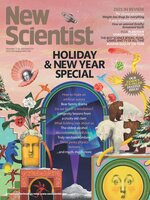 13-26 December 2025
13-26 December 2025
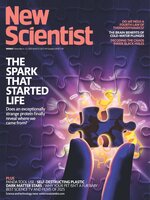 Dec 06 2025
Dec 06 2025
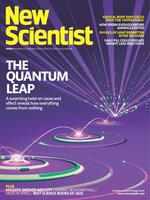 Nov 29 2025
Nov 29 2025
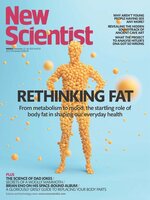 Nov 22 2025
Nov 22 2025
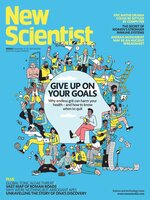 Nov 15 2025
Nov 15 2025
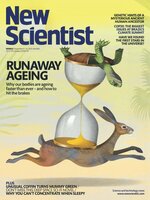 Nov 08 2025
Nov 08 2025
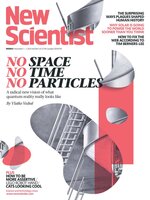 Nov 01 2025
Nov 01 2025
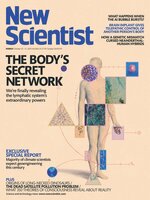 Oct 25 2025
Oct 25 2025
 Oct 18 2025
Oct 18 2025
 Oct 11 2025
Oct 11 2025
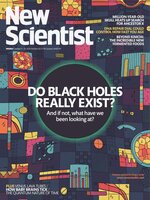 Oct 04 2025
Oct 04 2025
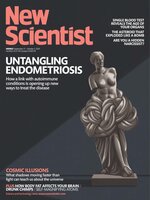 Sep 27 2025
Sep 27 2025
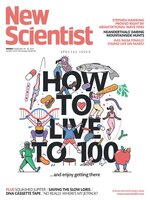 Sep 20 2025
Sep 20 2025
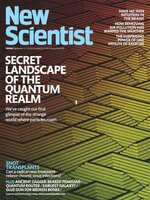 Sep 13 2025
Sep 13 2025
 Sep 06 2025
Sep 06 2025
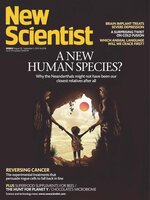 Aug 30 2025
Aug 30 2025
 Aug 23 2025
Aug 23 2025
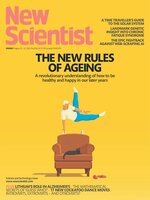 Aug 16 2025
Aug 16 2025
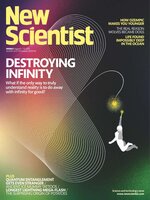 Aug 09 2025
Aug 09 2025
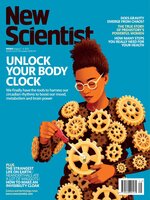 Aug 02 2025
Aug 02 2025
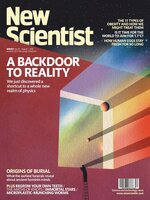 Jul 26 2025
Jul 26 2025
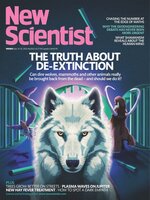 Jul 19 2025
Jul 19 2025
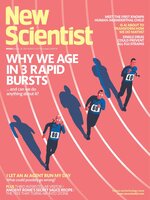 Jul 12 2025
Jul 12 2025
 Jul 05 2025
Jul 05 2025